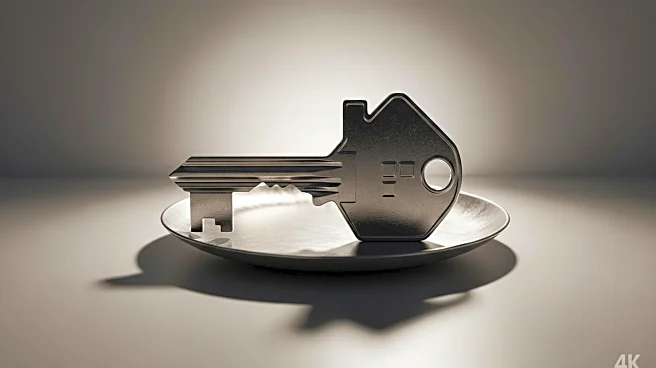What's Happening?
The real estate market is experiencing a shift as homebuyers take a more cautious approach, leading to a significant increase in deal cancellations. In July, over 15% of home purchase agreements were canceled, marking the highest rate since tracking began in 2017. This trend is attributed to buyers' concerns over rising homeownership costs and job security, compounded by high mortgage rates. The availability of more homes for sale has allowed buyers to be more selective, often backing out of deals if they find better options. This cautious behavior is most prevalent in regions like Texas and Florida, where there is a surge in available homes due to active homebuilding.
Why It's Important?
The increase in deal cancellations reflects broader economic uncertainties affecting the housing market. Buyers' hesitance is driven by affordability concerns, including high mortgage rates and the costs associated with homeownership. This trend impacts sellers, who may need to adjust their expectations and pricing strategies to attract buyers. The shift in buyer behavior could lead to a cooling of the housing market, affecting real estate agents, builders, and the overall economy. As buyers exercise more leverage, sellers may face pressure to offer concessions or lower prices, potentially leading to a stabilization or decline in home prices.
What's Next?
The real estate market may continue to experience fluctuations as buyers remain cautious. If mortgage rates decrease, it could encourage more buyers to enter the market, increasing competition and potentially stabilizing deal cancellations. Sellers may need to adapt by offering more incentives or adjusting prices to meet buyer expectations. The ongoing economic uncertainty suggests that the market may remain unpredictable, with potential shifts in buyer and seller dynamics.








